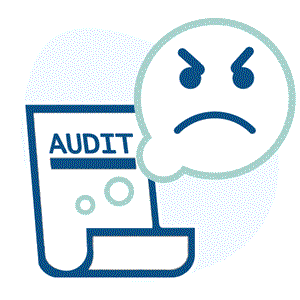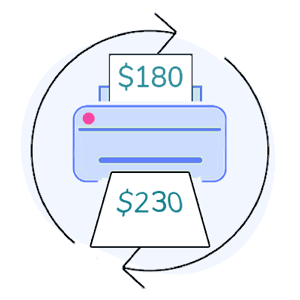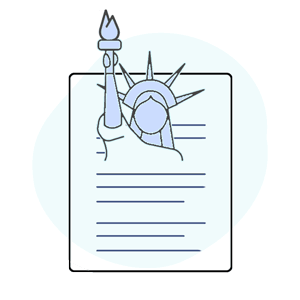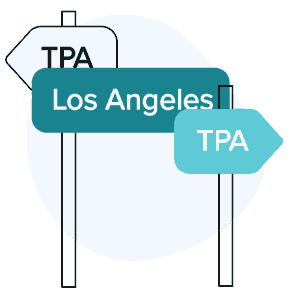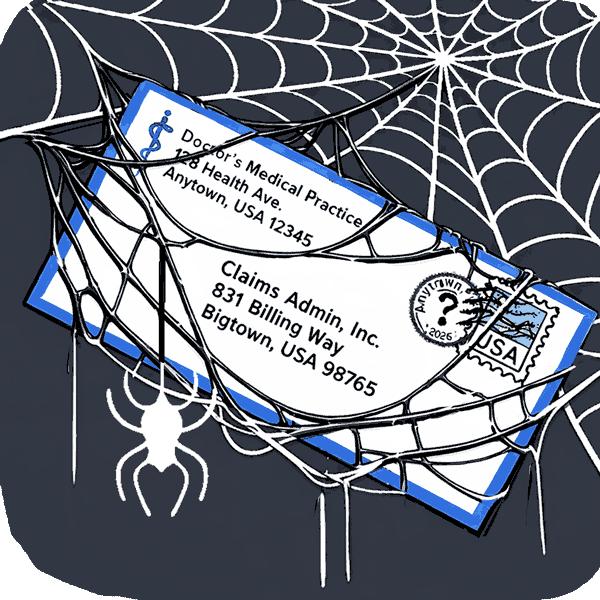SCIF Blames Anthem for Late Payments

California’s State Compensation Insurance Fund (SCIF) consistently fails to timely pay doctors for the care of injured workers. Between January 1 and June 15 of 2022, SCIF ignored California law and failed to timely process 18,160 bills sent by daisyBill providers (a 38% non-compliance rate).
Making matters worse, Preferred Provider Organization (PPO) discounts from the likes of Anthem Blue Cross reduce SCIF reimbursements to pittance rates. In 2022 so far, SCIF paid our clients, on average, only:
- 72% of Official Medical Fee Schedule (OMFS) rates for Evaluation and Management (E/M) services, which means…
- SCIF reimbursed only 103% of Medicare rates for treating injured workers, though in reality…
- When considering the loss factor of 38% late payments combined with the expense of pursuing payment, SCIF really pays providers “Medicare Minus” rates.
In response to our inquiries regarding two missing payments, SCIF blamed the lack of payment on Anthem’s tardiness in applying its discounts to the reimbursement amounts owed per the Official Medical Fee Schedule (OMFS).
In other words, SCIF doesn’t pay on time (as required by California law) because Anthem needs more time to strip revenue from doctors (Why does California allow Anthem Blue Cross to profit from doctors’ treating California injured workers?).
As the mind-numbing chat and call below show, neither entity seems interested in taking responsibility for the non-compliance, preferring instead to mutually shift the blame to each other. Meanwhile, the circular blame game and paltry payments clearly demonstrate that treating SCIF-insured patients is a financial hazard for medical practices.
Data: SCIF (Untimely) Pays Medicare Rates
As data from over 44,000 e-bills sent to SCIF by daisyBill provider clients demonstrates, extreme reimbursement discounts amount to a depressing statistic: SCIF paid a combined 72% of OMFS rates for E/M services this year to date, thereby withholding over $1.3 million from providers.
Treating injured workers at these rates is financially impossible in the long term, as our recent comparison of Medicare expenses and workers’ comp expenses makes clear.
And doctors, don’t hold your breath for these (puny) payments. While California law requires the claims administrator to remit payment and the e-EOR within 15 working days of receiving the provider’s e-bill, SCIF failed to meet that mandated deadline 38% of the time for bills submitted in 2022.
Worse, for 4% of bills sent so far in 2022, SCIF simply failed to return the e-EOR at all. That’s 1,797 e-bills for which the doctor’s administrative staff must contact SCIF to track down payment for the treatment rendered.
Kafkaesque Calls: SCIF & Anthem Play Circular Blame Game
When daisyBill agents reached out to SCIF via live chat to resolve one provider’s unpaid e-bill — a full month overdue — SCIF claimed that it wasn’t possible to send payment or an EOR until Anthem was finished “processing” (read: pruning) the bill.
(As noted above, SCIF requires providers to initiate a separate chat for each of the 1,797 unpaid bills; a ridiculous administrative burden for practices that treat injured worker).
As directed by the SCIF chatter, daisyBill reached out to Anthem about two missing payments for which SCIF placed the blame on Anthem. The Anthem representative informed daisyBill that neither bill was “on-file” with Anthem. Further, Anthem’s “pricing team” — the only people who might know the actual status of the bills — does not take “live calls.”
According to the Anthem representative, the only way to get in touch with the Anthem pricing team is to obtain the EORs from SCIF; the missing EORs for the unpaid bills in question. Yes, the only way to get information about these unpaid bills was to wait until the bills were paid.
If you can’t believe this, we don’t blame you. Click below (or here) to hear and see for yourself:
Does SCIF really expect providers to continue treating injured workers under these conditions, and at these paltry rates? Providers, it’s past time to take action. You have the power to decline to treat SCIF-insured injured workers.
Say NO
- to accepting Medicare Minus rates from SCIF for treating injured workers, and
- to SCIF’s noncompliant payment abuse, which devours your administrative resources.
Bottom line: The SCIF/Anthem duo is a financial disaster for medical practices. Capitulating to this duo’s behavior serves no one, injured workers included.
daisyBill has the technology and expertise to make workers’ comp work better. Reach out to see how we can help your practice obtain fast, correct reimbursement for treating injured workers.
LET’S TALK
DaisyBill provides content as an insightful service to its readers and clients. It does not offer legal advice and cannot guarantee the accuracy or suitability of its content for a particular purpose.
